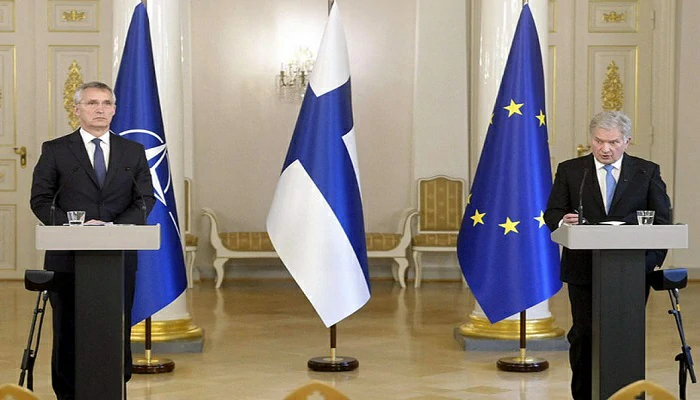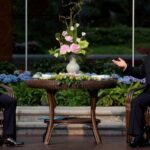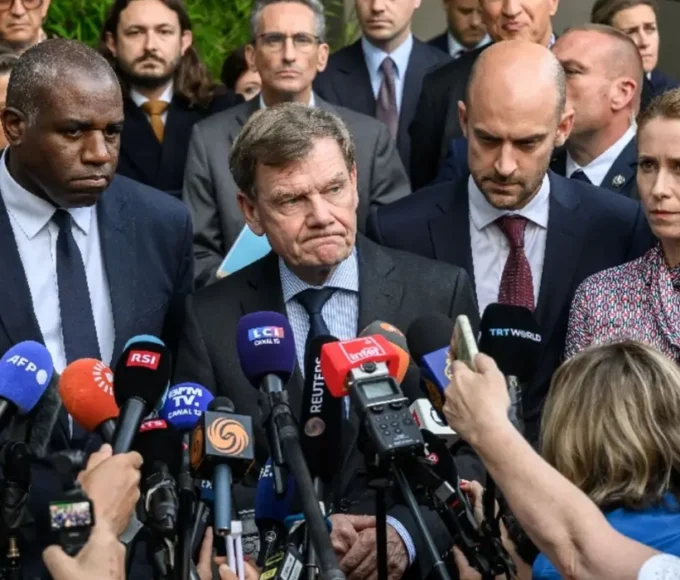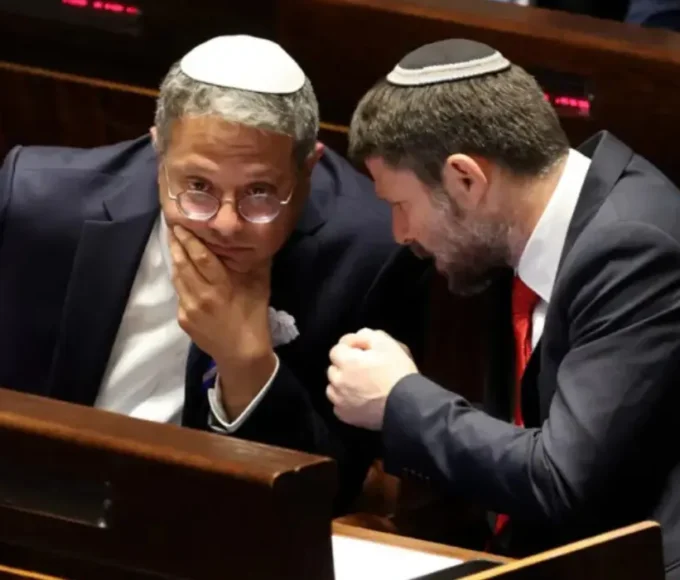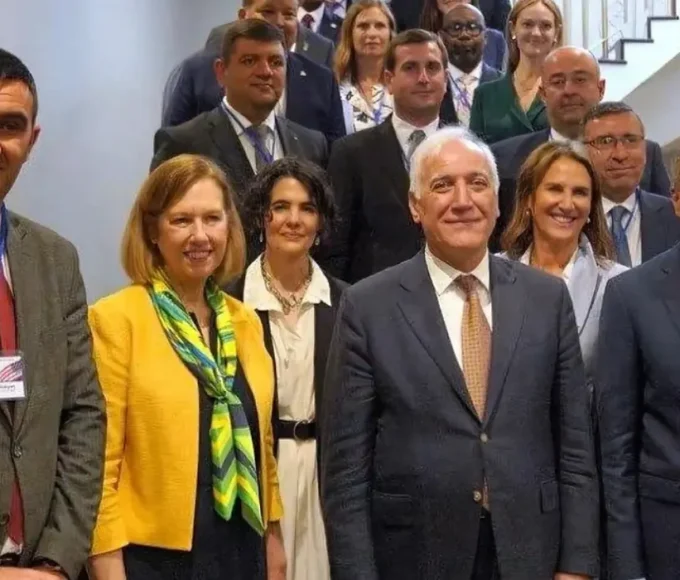Finland made its official entry into the North Atlantic Treaty Organization (NATO) on Tuesday, a “historic” turn caused by Russia’s offensive in Ukraine. Antony Blinken, US Secretary of State, hailed a “historic day”.
Finland, which shares a border of more than 1,300 kilometers with Russia, is turning its back on its legendary neutrality. The country will now benefit from conventional military assistance from its allies and nuclear deterrence.
President Sauli Niinistö attended the ceremony in Brussels marking his country’s accession to NATO. Helsinki’s first act as the 31st member of the Alliance was to deposit its ratification of Sweden’s candidacy, which must complete the new Allied security architecture, largely facing Moscow, even if A. Niinistö asserts that Finland’s NATO membership “targets no one”. “We don’t want others telling us what we should or cannot do,” said the Finnish head of state. I have always believed that NATO would not close its doors to us, however, the Russians have somehow sought to create a sphere of influence around them. Well, we are not in a sphere! What we are witnessing today is the result. »
“We have been on board for a long time,” he added. We have been in an advanced partnership with Sweden for more than ten years now and during this time we have developed our capabilities and collaborated with NATO. The change is therefore not drastic. But I’m sure Finns feel safer. »
Russia has not failed to react to this enlargement of NATO which is probably not finished, because Sweden is also knocking at the door of the Atlantic Alliance. “This is a further aggravation of the situation. The enlargement of NATO is an attack on our security and on the national interests of the Russian Federation. This forces us to take countermeasures in tactical and strategic terms for our security, reacted Dmitry Peskov, spokesman for the Kremlin. The situation with Finland is fundamentally different from that with Ukraine. Finland never became anti-Russian and we had no argument with them. »
A change brought about by the Russian invasion of Ukraine. “With Ukraine, the situation is diametrically opposed and potentially dangerous,” continues D. Peskov. This is what dictated the need to launch a special operation and which requires achieving the goals set. But this membership will only affect the nature of bilateral relations with states that become new members of the Alliance, because the Alliance is an unfriendly organization, hostile in more ways than one towards Russia. But I repeat: Ukraine is different from Finland, it is not possible to compare the two. »
“We declare Finland the 31st member of the Alliance with the receipt of these documents”, declared A. Blinken, head of US diplomacy, during a ceremony at NATO headquarters in Brussels. He hailed, like the head of NATO, Jens Stoltenberg, a “historic day”. “I am tempted to say that this is perhaps the only thing we can thank (Russian President Vladimir) Putin for, because he once again precipitated something that he said he wanted to avoid by attacking” Ukraine, said A. Blinken.
Unrest in Lithuania
On the same day, NATO’s 31 foreign ministers are preparing for the next summit to be held in Vilnius in July. It is already a symbol in itself to hold this summit in Lithuania, a country bordering Russia: the desire for a show of force against the Kremlin and a demonstration of the unity of the Atlantic Alliance.
Not only does the war in Ukraine lead to the enlargement of NATO in Scandinavia, but it also pushes it to become stronger in the long term. Increased military spending will be the focus of the Vilnius summit. After decades during which the United States called on the European allies to “share the burden”, that is to say to invest in their own defence, NATO had decided to set itself the objective in 2014 in Cardiff that their military expenditure reaches 2°/° of the GDP. A quarter of the allied countries are not there yet. The objective for Vilnius is that it is now a floor, 2% minimum.
NATO must strengthen its armies and its stockpiles of armaments; the war in Ukraine has shown that they are insufficient and that the country illusion of the last 30 years has damaged the European arms industry. According to NATO, defense manufacturers must now have the assurance that contracts will follow in the decades to come.
This article is originally published on perspectivesmed.com


